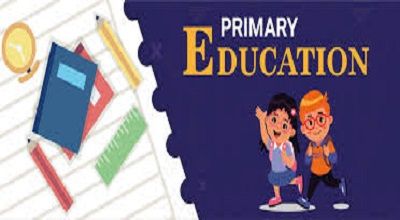Primary Education
Primary Education refers to the first stage of formal education that children typically receive, usually between the ages of 5 and 12, although the exact age range may vary from one country to another. It is a crucial phase in a child’s educational journey and lays the foundation for their future learning and development.
Key characteristics of Primary Edu include:
- Basic Subjects: Primary education primarily focuses on teaching fundamental skills and knowledge, including subjects like mathematics, language arts (reading and writing), science, and social studies. These subjects are often tailored to the specific curriculum and educational standards of the country or region.
- Holistic Development: It aims to foster the holistic development of a child, not only academically but also socially, emotionally, and physically. Schools may incorporate activities like sports, arts, and music to promote well-rounded growth.
- Elementary School: In many countries, Primary Edu corresponds to elementary school, and students typically progress through grades or year levels. The structure and duration of primary education may vary from place to place.
- Qualified Teachers: Primary education is usually delivered by qualified teachers who are trained to work with young children. These teachers play a crucial role in creating a positive and engaging learning environment.
- Universal Access: In many countries, primary education is compulsory and free, with the goal of ensuring universal access to education for all children. This is a fundamental right recognized by international organizations like the United Nations.
More Read…
- Curriculum Variations: While there are common subjects taught in primary education worldwide, the specific curriculum and educational approach can vary significantly from one country to another. Cultural and regional factors often influence the curriculum.
- Assessment and Evaluation: Assessment methods in primary education typically involve regular testing and evaluation of students’ progress. The purpose is to track learning outcomes, identify areas where students may need additional support, and ensure they meet educational standards.
- Transition to Secondary Education: Primary Edu sets the stage for the transition to secondary education. It equips students with foundational knowledge and skills necessary for more advanced studies.
- Parental Involvement: Parents and guardians often play a crucial role in supporting their children’s primary education by participating in parent-teacher conferences, helping with homework, and fostering a positive attitude toward learning.
Importance of Primary Education
Primary education holds immense importance for several reasons, and it plays a foundational role in a person’s overall development and the well-being of society as a whole. Here are some key reasons why primary education is crucial:
- Foundation of Learning: Primary education provides the fundamental knowledge and skills that are essential for a child’s academic and intellectual growth. It equips children with basic literacy and numeracy skills, which are prerequisites for higher levels of education.
- Critical Thinking and Problem-Solving: Primary edu encourages critical thinking and problem-solving abilities from an early age. Children learn to analyze information, make decisions, and solve simple problems, which are skills they will use throughout their lives.
- Promotes Social and Emotional Development: In addition to academic subjects, primary education also focuses on social and emotional development. It helps children build interpersonal skills, emotional intelligence, and resilience, which are vital for success in later life.
- Reduces Poverty: Access to quality primary edu can significantly reduce the cycle of poverty. It opens up opportunities for future employment and economic advancement by providing individuals with the skills and knowledge they need to secure better jobs.
- Gender Equality: Primary edu is a critical tool for promoting gender equality. When girls have access to education, they are more likely to delay marriage, have fewer children, and participate in the workforce, which can lead to greater gender equality and improved societal outcomes.
- Health and Well-Being: Primary education can also have a positive impact on health and well-being. Children who attend school are more likely to receive health-related information and vaccinations, leading to better health outcomes for themselves and their communities.
Extra Importance…
- Social Cohesion: Education promotes social cohesion by bringing diverse groups of children together in a learning environment. It fosters tolerance, and cooperation among individuals from different backgrounds, contributing to peaceful and cohesive societies.
- Citizenship and Civic Participation: Primary Edu introduces children to the concepts of citizenship and civic responsibility. It helps them understand the importance of participating in their communities and contributing to the betterment of society.
- Economic Development: A well-educated population is essential for economic development. Primary education creates a skilled workforce that can drive innovation, productivity, and economic growth in a country.
- Global Competitiveness: In an increasingly interconnected world, countries with strong Primary Edu systems are better positioned to compete in the global economy. They can adapt to changing technologies and participate in international collaborations more effectively.
- Lifelong Learning: Primary edu instills a love for learning and curiosity in children. It sets the stage for a lifelong commitment to education and continuous personal growth.
- Environmental Awareness: Primary Edu can also incorporate environmental education, raising awareness about environmental issues and sustainability, which is crucial for addressing global environmental challenges.
Summary
Overall, primary education is a critical stage in a child’s development, providing them with essential skills and knowledge that form the basis for their future educational and life success. It serves as the cornerstone of a lifelong learning journey.
In summary, Primary Edu is the cornerstone of individual development and societal progress. It empowers individuals with knowledge, skills, and values that shape their lives and contribute to the betterment of their communities and the world at large. Ensuring universal access to quality Primary Education is a vital goal for governments, international organizations, and communities worldwide.
